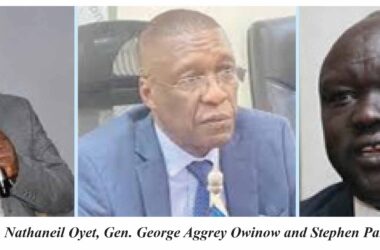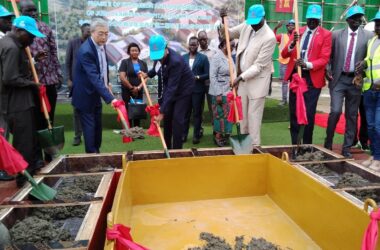By Ephraim Modi Duku Sokiri
Ministry of General Education and Instruction with partners, have underscored the need to advance education sector, including recognizing the contribution of teachers in the country.
This development aroused during a roundtable panel discussion on education in Juba, on Friday. The panel tackled elements facing teachers and proposed some solutions.
The panel discussion concluded a month-long campaign to look at the role of investing in teachers, including regular and prompt payments, building their capacity, retaining the most skilled educators, and allowing them to deliver in nation-building.
In a rejoinder to the panel, the Undersecretary at the Ministry of General Education and Instruction, Dr. Kuyok Abol Kuyok, blamed the government for the inactive enhancement of the education sector.
He noted that it is the obligation of every child to go to school.
“There’s no way, I can say that the government is brilliantly doing this and that, but I think things are not the same; education is a right for every child in this country, according to the constitution,” said Kuyok.
Dr. Kuyok underscored that the role of teachers is a difficult task that is being neglected a lot in the community.
He stressed renewing the eminence of teachers as he embarked on visiting many schools across the country.
“Teaching is a difficult job that is not being appreciated very much in society” he noted.
He emphasized the need for the government pays teachers in order for them to play their family responsibilities.
Dr. Kuyok stated that the government has made notable strides in increasing compensation and improving working conditions for teachers in South Sudan.
“I remain steadfast in my commitment to continuing this forward momentum, to advocating for our teachers and to improving our educational systems,” he vowed.
The undersecretary stressed the need for quality education for children, tasking stakeholders to ensure availability of schools, in the country.
European Union’s (EU) representative, Kenyi Kilombe, echoed that the government’s primary responsibility is to ensure prompt and meaningful payment of teachers.
“Payment of teachers’ salary is the obligation of the government. Whatever the donors are doing to support the teachers in so-called incentives is just a kind of assistance,” he explained.
Kilombe noted that after the education system in the country was about to collapse following 2016 political crisis, but the EU intervened to rescue it.
“Then the EU introduced a project called ‘IMPACT’ to pay incentives for over 30,000 teachers in community and government schools across the nation,” he disclosed.
He said the EU did what to let the children of South Sudan suffer due to lack of teachers in classes.
“It’s meaningless for the children to go and hang around in the school compound,” he lamented, adding though “disbursing and regularly paying teachers is a mandate of the government.”
However, UNICEF’s Chief of Education, Wongani Taulo, hinted at the vital role that teachers play in modeling the country’s future.
“Everyone who is going to be a doctor, an engineer, or a pilot is being shaped today by teachers we have in our education system. The foundation we lay today, will determine the future of the country “she said.
For over a decade, South Sudan’s education system has remained in quest over the management of its affairs as teachers are not being regularly catered for, by the government.
“Education is one of the most highly demanded services or sectors in the country, as seen by the many services and evidences that have been generated by different actors in the sector,” Wongani noted.
It is often said that “children are our future,” and in a world where the future is swiftly changing, it is significant to prepare,” she added.
She reiterated that it is essential to support the teachers’ courage in mentoring the children to claim their future.
Meanwhile, Jimmy Kenyi, one of the teachers, decried the inadequate presence of female teachers in the education segment across the country, saying he faces a lot of difficulty handling the girls in the school.
“I have only one female teacher, and when it comes to handling girls’ issues in the school, you find that she is overcrowded with a number of problems and she may not be able to help all the girls,” he cited.
UNICEF’s 2017 report indicates that South Sudan has the highest proportion of out-of-school children in the world, with almost three million primary-aged children out of school.
Only 48 percent of the youth in South Sudan are literate, as per the World Bank’s 2020 statement.
South Sudan’s Constitution already guarantees all children free and compulsory primary and secondary education to narrow down the illiteracy rate in the country.




